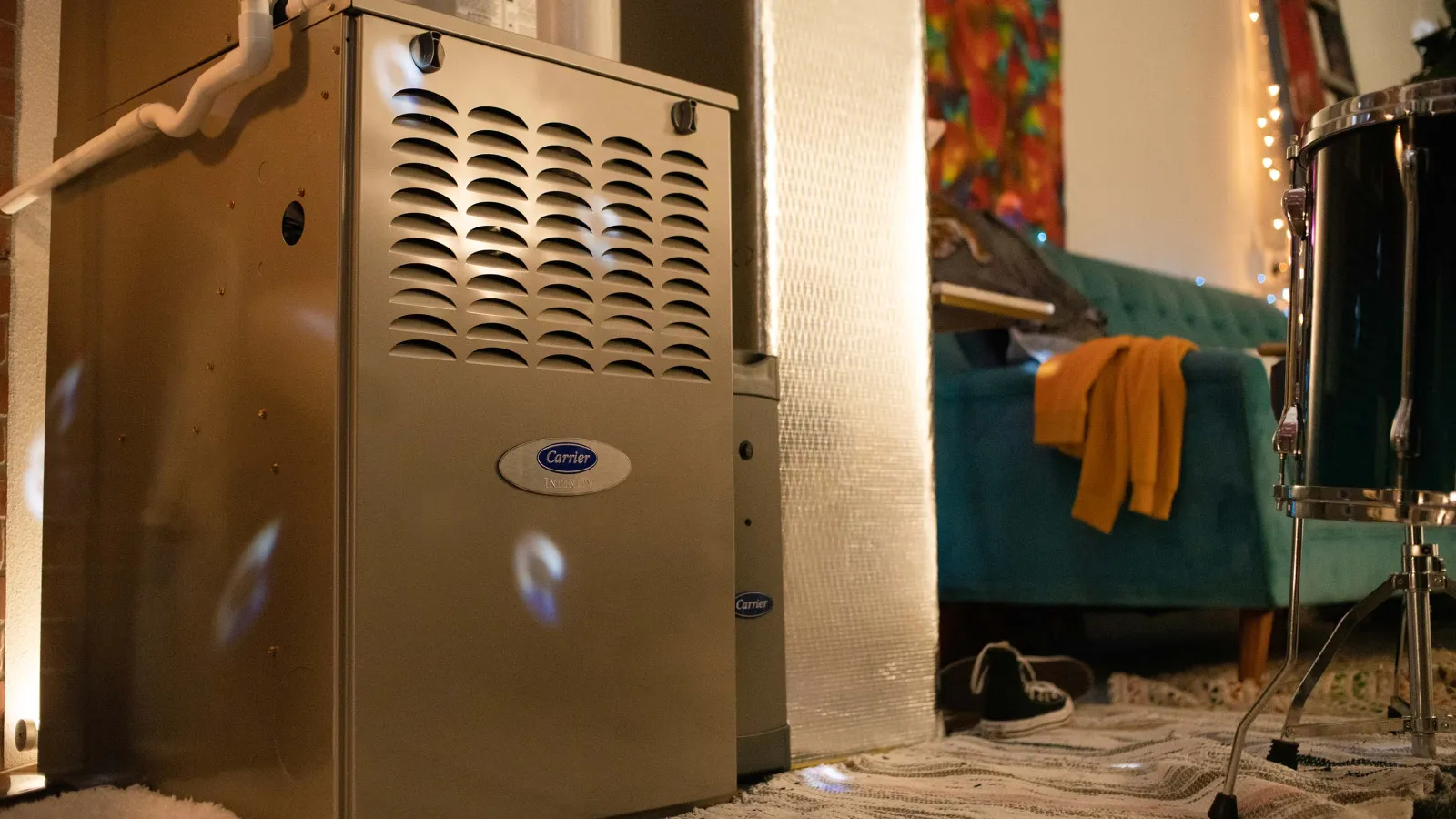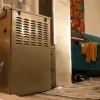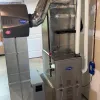However, if you heat your home in winter, you deserve to be safe.
If you're like most homeowners here in Atlanta, you heat your home with a natural gas furnace. Sure, you might have a dual fuel system that uses an electric heat pump during those "cool but not quite cold" times of the year. But when December arrives and temperatures drop, you're burning gas.
Can a furnace leak carbon monoxide? Yes, it can. It definitely shouldn't, but there's always a possibility.
Burning anything, of course, requires safety precautions. For starters, there are flames. There's also natural gas, a combustible material. And last but not least — this is where most problems occur — there are the exhaust gases from the combustion process.
You know, the stuff that contains carbon monoxide.
You don't want carbon monoxide to leak into your home.
It's bad stuff! In small amounts, carbon monoxide (aka "CO") can cause headaches and dizziness. In larger amounts, it can make you lose consciousness. Or even kill you.
Luckily, there are carbon monoxide detectors that can alert you when CO levels are dangerously high. "Dangerously," however, is a relative term, and some CO detectors are more sensitive than others.
Anyway, your furnace can be the source of CO leaks into your home. After all, furnaces burn gas and exhaust CO as part of the normal combustion process. In most furnaces, most of the time, all of these gases are vented out of the system and never enter your living space. That's how your furnace was designed to handle combustion gases.
But certain conditions can cause carbon monoxide to leak from your furnace:
- Corroded or cracked heat exchanger
- Lack of sufficient combustion air
- Negative air pressure that draws gases out of the furnace
- Exhaust system set up to vent through an old chimney
- Poor installation by an HVAC contractor
Other than waiting for your CO detector to scream at you (and you do not want things to ever get that bad), how can you ensure that your furnace is venting exhaust gasses properly and safely?
A digital combustion analyzer tells whether your furnace is safe.
If you have a natural gas appliance in your home, you want to make sure it passes all of the manufacturer's safety requirements. Safe combustion is one of those requirements, and a combustion analyzer helps ensure your appliances are venting CO properly.
Some HVAC contractors keep a combustion analyzer on hand. Most don't.
At PV Heating, Cooling & Plumbing, we don't just keep one on hand…
All of our technicians carry a digital combustion analyzer and use it when inspecting furnaces, whether for tune-ups or to diagnose a problem.
We do this because we take combustion safety very seriously! To use the combustion analyzer, we start the furnace and take multiple readings from around the equipment, inside the vent pipe, and within the living space. Modern combustion analyzers can measure the number of combustion gases escaping the furnace down to a very fine level.
The bottom line is that you'll know whether the unit is venting properly and whether any CO is — or could start — escaping into your living space.
Fringe benefit: Diagnose efficiency issues
Another reason to get readings on furnace combustion is to monitor efficiency. Digital combustion analyzers also show which gases are moving through your flue pipe — and how much of them.
Why is that important? Because if levels are off from what the furnace is supposed to produce, your furnace might not be operating as efficiently as it should. This can be true even when there's nothing unsafe about the combustion process (e.g. a CO leak). Some combustion issues might not be dangerous, but they could impact the performance of your furnace.
A little tweaking might be all that's required. Your technician should be able to explain what, if anything, is going on and how to address it.
We're obligated to tell you if there's a problem with your gas appliance. Especially carbon monoxide leaks from your furnace!
We consider it part of our duty as HVAC professionals. Without a proper combustion analysis with readings from our analyzer tool, we'd be less-than-certain about potential safety issues — and we always want to be certain!
So if you're concerned about whether your furnace is safe or are worried about potential CO issues from a gas appliance, here's what to do: Buy a good CO detector if you haven't already. That's the most important thing. Then call your HVAC contractor and ask whether they can perform a combustion analysis with a digital tool.
If you're in the Atlanta area, you can call us. We're equipped to perform those measurements.
Hopefully, everything will be fine! And if it isn't, your contractor should be able to make adjustments or at least recommend changes that will make your furnace safer.
At PV Heating, Cooling & Plumbing, we perform combustion analysis as part of our regular heating season inspection. That way, we can verify whether your furnace can operate safely and efficiently all through the season. Clients with service agreements get this inspection every year!
Think it's time to have your furnace inspected? Get in touch with us today!






